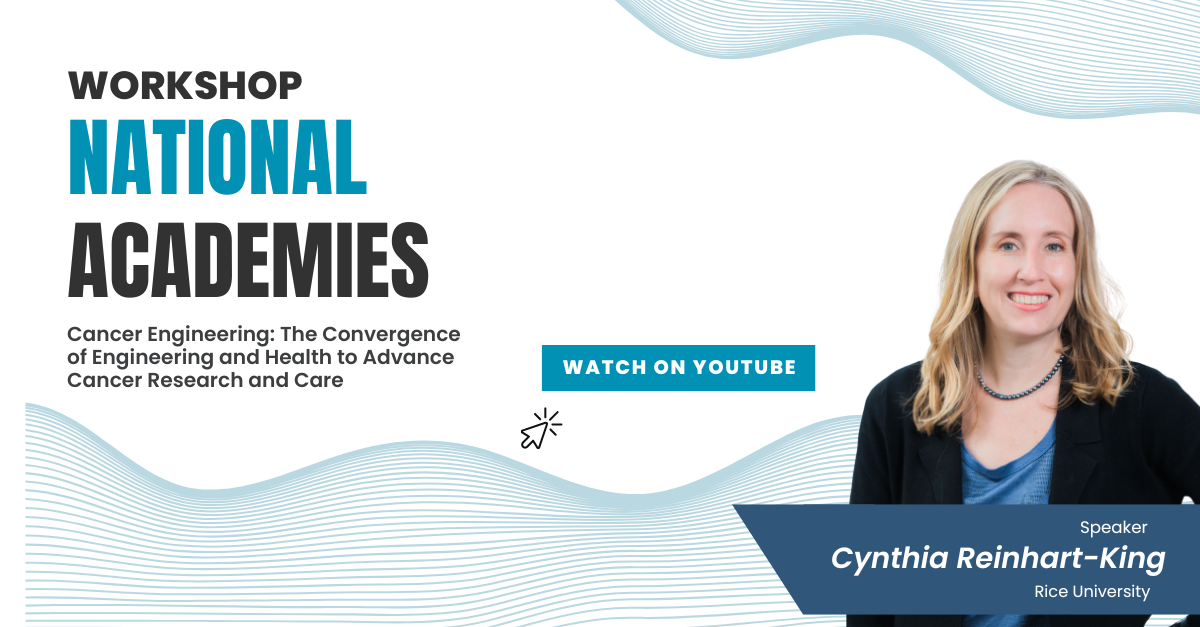Annual Meeting 2025 Preliminary Schedule Now Posted
Check out the condensed program and schedule at-a-glance for the fall’s BMES Annual Meeting in San Diego, Calif., now posted here: ...
BMES serves as the lead society and professional home for biomedical engineers and bioengineers. BMES membership has grown to over 6,700 members, with more than 110+ BMES Student Chapters, three Special Interest Groups (SIGs), and four professional journals.
Welcome to the BMES Hub, a cutting-edge collaborative platform created to connect members, foster innovation, and facilitate conversations within the biomedical engineering community.
Discover all of the ways that you can boost your presence and ROI at the 2024 BMES Annual Meeting. Browse a range of on-site and digital promotional opportunities designed to suit any goal or budget that will provide maximum impact.
The Akay Lab biomedical research team at the University of Houston has improved on a microfluidic brain cancer chip previously developed in their lab, the university reports. The new chip allows multiple-simultaneous drug administration, and a massive parallel testing of drug response for patients with glioblastoma, the most common malignant brain tumor.
“The new chip generates tumor spheroids, or clusters, and provides large-scale assessments on the response of these GBM tumor cells to various concentrations and combinations of drugs," Metin Akay said in the announcement.
"This platform could optimize the use of rare tumor samples derived from GBM patients to provide valuable insight on the tumor growth and responses to drug therapies,” Akay, the John S. Dunn Endowed Chair Professor of Biomedical Engineering and department chair continued.
The paper is published in the inaugural issue of the IEEE Engineering in Medicine & Biology Society's Open Journal of Engineering in Medicine and Biology.
The ability to quickly assess the effectiveness of a cancer drug would be a notable improvement over typical cancer protocols in which chemotherapy drugs are given, then tested for several months, and a patient switched to another drug if the first is ineffective. The new device can determine the optimal drug combination in as little as two weeks. “When we can tell the doctor that the patient needs a combination of drugs and the exact proportion of each, this is precision medicine.”
Akay's team takes a piece of a tumor biopsy, cultures it and puts it in the chip. Then they add chemotherapy drugs to the chip's microvalves to determine the best drug combination, and the specific proportion, that kills the most tumor cells.
The team cultured 3D tumor spheroids, or clusters, from GBM cell lines as well as patient-derived GBM cells in vitro and investigated the effect of the combination of Temozolomide and a nuclear factor-κB inhibitor on tumor growth.
“Our study revealed that these drugs have synergistic effects in inhibiting spheroid formation when used in combination, and suggests that this brain cancer chip enables large-scale, inexpensive and sample-effective drug screening to 3D cancer tumors in vitro. Further, this platform could be applied to related tissue engineering drug screening studies,” said assistant professor Yasmine Akay. She is joined on the team by research assistant professor Naze Gul Avci and post-doctoral fellow Hui Xia. The tissue samples were provided by project collaborator Jay-Jiguang Zhu, MD, director, Neuro Oncology, McGovern Medical School at UT Health.
Read more HERE.

Check out the condensed program and schedule at-a-glance for the fall’s BMES Annual Meeting in San Diego, Calif., now posted here: ...

BMES was proud to be represented at the recent National Academies of Sciences, Engineering, and Medicine (NASEM) workshop last week, Cancer &...

Because we understand the complexity of this year’s funding and travel uncertainty, we are extending the abstract submissions deadline for this...

University of Arkansas researchers recently won a $145,000 award from the Department of Defense to study whether metabolic changes in tissue could...

1 min read
A new Northwestern University study has discovered that the packing of the three-dimensional genome structure, called chromatin, controls how cells...

1 min read
A study on molecular interactions by biomedical engineers in the University of Minnesota's College of Science and Engineering will make it easier and...